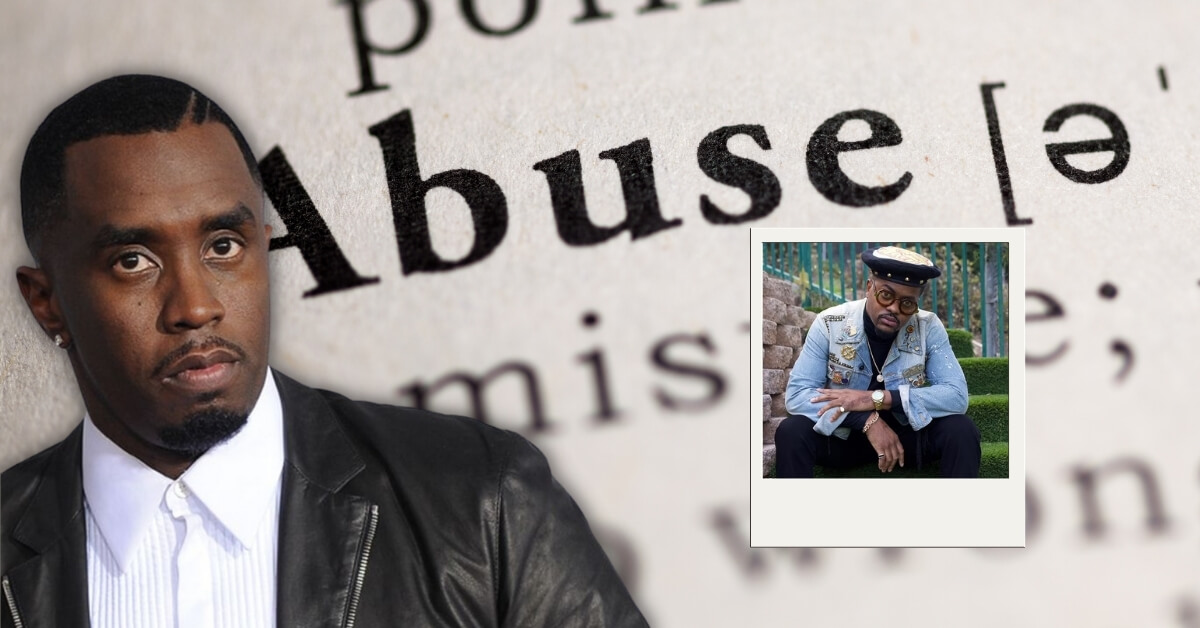It takes one moment of courage for decades of oppression to crumble like a house of cards. Diddy’s empire came crashing down the moment Cassie revealed the harrowing details of their relationship involving threats, domestic violence, filming without consent, and more.
Rodney “Lil Rod” Jones, a name that until recently hovered quietly in the background of the music industry’s lavish stages, has been thrust into the limelight, not for a chart-topping hit, but for accusations that read like a script from a Hollywood thriller.
But who exactly is Lil Rod, and what has led him to take on one of the industry’s titans, Sean “Diddy” Combs?
Before that, let’s get this clear– Jones’s allegations aren’t the first to shed light on Diddy’s toxic behavior. Jaguar Wright has come forward with severe allegations, accounting for multiple murders at the rapper’s hands.
The intrigue deepens as we delve into the allegations laid out by Jones, painting a picture of a man caught in a maelstrom of power plays, exploitation, and a quest for justice.
At the heart of this saga, questions emerge about the boundaries of power, the shadows lurking behind the glamour of the music industry, and the price of silence.
What are the truths that lie buried beneath the surface, and how will this battle of David versus Goliath play out in the court of public opinion and the halls of justice?
Rodney “Lil Rod” Jones, a former producer for Sean “Diddy” Combs, has accused the music mogul Diddy of operating a racketeering enterprise, sexual harassment, and drugging him, among other serious allegations, seeking $30 million in damages.
Exploring the Allegations Against Diddy in the Latest Lawsuit
Rodney “Lil Rod” Jones, once a behind-the-scenes force in the music industry, has brought forth a lawsuit that could very well be the script of a blockbuster drama, only the stakes are all too real.
Jones accuses Sean “Diddy” Combs of a litany of disturbing behaviors, including forcing him into uncomfortable situations with sex workers, drugging him, and subjecting him to unwanted sexual advances.
The lawsuit paints a harrowing picture of an individual subjected to the whims of power, where the lines of consent and autonomy blur amidst the glittering façade of celebrity life.
“At the core of Mr. Jones’ allegations is a narrative that extends beyond personal grievance, touching on the pervasive issue of power dynamics within the entertainment industry,” the complaint details.
Jones’s legal team alleges that this is not merely about personal grievances but indicative of a systemic issue where power can corrupt and silence those caught in its wake.
Jones claims he was forced to work in environments that were not only professionally inappropriate but deeply dehumanizing, alleging that Diddy engaged in “constant unsolicited and unauthorized groping and touching.”
Such accusations bring to light not just Jones’s plight but also raise questions about the culture within the music industry at large.
The lawsuit doesn’t stop with Diddy. It implicates other high-profile figures and organizations, suggesting a network of complicity that, if true, underscores the challenges individuals face when going up against powerful industry moguls.
“Mr. Jones has secured hundreds of hours of footage and audio records,” the lawsuit asserts, hinting at the potential depth of evidence against Combs and co-defendants.
This claim of extensive evidence suggests that the case could have far-reaching implications beyond the courtroom, challenging us to consider the mechanisms of accountability in high-stakes industries.
Reflecting on the Unfolding Drama
As the legal battle unfolds, the court of public opinion is also in session. Diddy’s legal team vehemently denies the allegations, framing Jones’ lawsuit as a desperate attempt for financial gain.
“Lil Rod is nothing more than a liar,” Diddy’s attorney Shawn Holley is quoted, dismissing the claims as “complete lies.” This defense raises critical questions about the intersection of truth, power, and justice in the age of celebrity.
This saga, still in its early chapters, promises to be a litmus test for the entertainment industry’s willingness to confront and rectify the darker aspects of its glittering existence.
As readers, we are left to watch, wait, and wonder about the outcomes of this legal battle and its implications for justice and accountability in the limelight.
How will this lawsuit affect Diddy’s legacy and the broader music industry? Can the legal system effectively address the power imbalances that allow such alleged abuses to occur? In the clash between power and truth, whose narrative will ultimately prevail?
Share your opinions, and let’s keep the conversation going for the victims against the industry giants.

